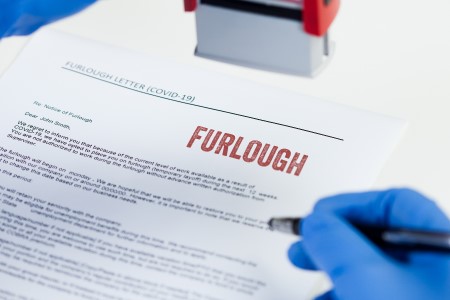
Nothing is certain in this world except for death and taxes. We all have to pay them, often begrudgingly. They can also feel particularly costly at the moment. The Government is collecting record amounts in taxation following COVID-19. The tax burden for 2020/21 – defined as the amount the Government collects both directly and indirectly – sat at 33.1% of GDP.
The Office for Budget Responsibility estimated this climbed to 34.4% in 2021/22 with more hikes on the horizon. In 2022/23, the tax burden is projected to reach 35.5%. Beyond this, it’s expected to continuingly rise to 36.3% by 2025/26. For context, this would be the highest level since the late 1940s, where all economic efforts were focused on the war.
Unfortunately for investors, there’s no such thing as a singular commercial property tax. You’ll need to be ready to cover many of them. Given that tax bills may be set to rise, we’ve broken down what taxes you need to be aware of for the ever-expanding commercial property market. There’s plenty you’ll likely need to pay, but we’ll cover the main ones you’ll need to concern yourself with. Along with where relief and deductibles can be found.
Source: The Independent
Stamp Duty Land Tax (SDLT)
Just like residential assets, SDLT is payable on the purchase of commercial properties. SDLT will be levied on increasing portions of the property in question when you pay £150,000 or more for it. Additionally, most transactions under £150,000 will still need a SDLT return sent to the Government.
Additionally, SDLT is paid on agricultural land, forests and more. Currently, the first £150,000 of a property’s value will have no SDLT levied. The next £100,000 (£150,001 – £250,000) will be charged a rate of 2%. Remaining amounts above £250,000 will then have 5% levied. These rates can be used to work out what SDLT is due for a lease premium on freehold sales and transfers.
Mixed-use leaseholds pay SDLT on both the purchase price of the lease and the value of the annual rent paid. These are calculated separately and then added together. SDLT must be paid withing 14 days of the transaction. The income derived from letting a commercial property is subject to tax. However, deductions can be made for certain expenses, including letting agent fees and loan interest. HMRC offers various reliefs for both residential and commercial properties, but they must all be claimed through a SDLT return. The Government’s website has guides on stamp duty, and a free-to-use calculator is also available.
Recognised as the UK’s oldest surviving tax, SDLT has come into renewed focus. The tax is filling the state’s coffers, but some believe it’s holding back the housing market. Calls have emerged for cuts in the tax or even scrapping it entirely. But it’s unlikely the exchequer will want to get rid of this cash cow. In 2021/22, £14.1bn was raised from stamp duty, more than doubling from what it was a decade ago and hitting the highest amount on record.
Source: Gov.uk, The Telegraph

Capital Gains Tax (CGT)
Commercial buyers are likely to get a better deal on CGT than their residential counterparts. If you hold a commercial property personally, you’ll have to pay CGT on any increase in its value when you sell. If property is held and sold through a limited company, corporation tax would instead be charged.
What you’ll pay in CGT will depend on your personal income tax rate. Basic rate taxpayers will pay 10% on commercial property, with 20% being levied on higher rate taxpayers. For comparison, CGT on residential property is 18% and 28% respectively.
CGT is only paid on the gains made above the tax-free allowance rate, which is currently sitting at £12,300. Where it’s due, it must be reported and paid within 60 days of a sale. If a person’s business is specifically to buy and sell property (developers for example) CGT won’t be due. Instead, income tax will be paid by sole traders or partners, while limited companies will pay corporation tax.
Deductions can be made from a CGT calculation where you invest in improving the property’s prospects. For example, costs can be deducted where money is spent extending a property or covering legal expenses.
CGT receipts are also rising in the UK given that property prices are skyrocketing. In 2021/22, £14.9bn was collected by the Government. The Office of Tax Simplification has recommended aligning CGT with Income Tax rates in a bid to support the economy but so far, this hasn’t been actioned.
Source: Gov.uk, The Low Incomes Tax Reform Group, City A.M.
Income tax
Commercial property owners are likely to pay income tax where they receive rent from tenants. Broadly, income profits from property are taxable and individuals are given a property allowance of £1,000.
Currently, people can receive an income of up to £12,570 before any income tax is levied, known as the personal allowance. Beyond this, income between £12,571 and £50,270 is taxed at 20%. Income tax is paid at 40% between £50,271 and £150,000, and anything above £150,000 is taxed at 45%.
Source: The Low Incomes Tax Reform Group
Council tax
Another commercial property tax to consider is council tax. Local authority wise, business properties are generally covered by business rates, whereas council taxes are levied on residential properties. However, some properties are assessed as having business and domestic use at the same time. Examples include pubs or shops where the owner lives on the premises. Where this occurs, owners may have to pay both business rates and council tax.
Council tax rates vary across the UK and are determined by what band they fall into. In England, council tax bands range between band A for properties valued up to £40,000, through to band H for properties costing more than £320,000.
The bills will differ between local authorities, but the average band D council tax in England for 2022/23 will be £1,966, 3.5% higher than the 2021/22 figure of £1,898.
Source: Which?, Gov.uk, The Department for Levelling Up, Housing & Communities

Value Added Tax (VAT)
As a rule, VAT is not paid on the sale or lease of a commercial property, unless it’s a new build. But, a seller or landlord can choose to charge the tax of 20% on the property. The reason why this might be done is to recover VAT paid on the costs associated with the sale.
VAT and indeed, all commercial property tax concerns can be particularly complicated. While the details covered here provide an overview on the basics, investors may want to seek expert guidance to get on top of what they’ll owe to the treasury.
Source: Alexander & Co
Other allowances
Aside from the allowances and deductions associated with each tax, there are a few more commercial property owners may be able to take advantage of.
Capital allowance relief can be claimed on assets bought to use in a business, including equipment and machinery. It can also be claimed for certain fixtures, which includes cranes, fire alarms, heating systems and the like.
Specifically, capital allowances come in the form of the annual investment allowance, first year allowances and business cars allowances. Each of these have different qualifying rules in place and provide varying levels of benefits.
Source: Gov.uk
Investors will need to get up to speed with the tax environment given the state of the economy. While tax bills have jumped as a result of covid spending, the Government now has reform squarely in its sights.
Boris Johnson recently said he wanted to end the “aberration” of high taxation, and the burden “must come down”. Additionally, Chancellor Rishi Sunak has promised to bring in a range of tax cuts in the Autumn. While it’s true that what various Government administrations say they will do and then what they actually implement can differ, investors may have to factor in a brand-new set of rates, rules, or deadlines over the coming months.
Source: Sky News, The Telegraph
Disclaimer
MFS are a bridging loan and buy-to-let mortgage provider, not financial advisors. Therefore, Investors are encouraged to seek professional advice.










